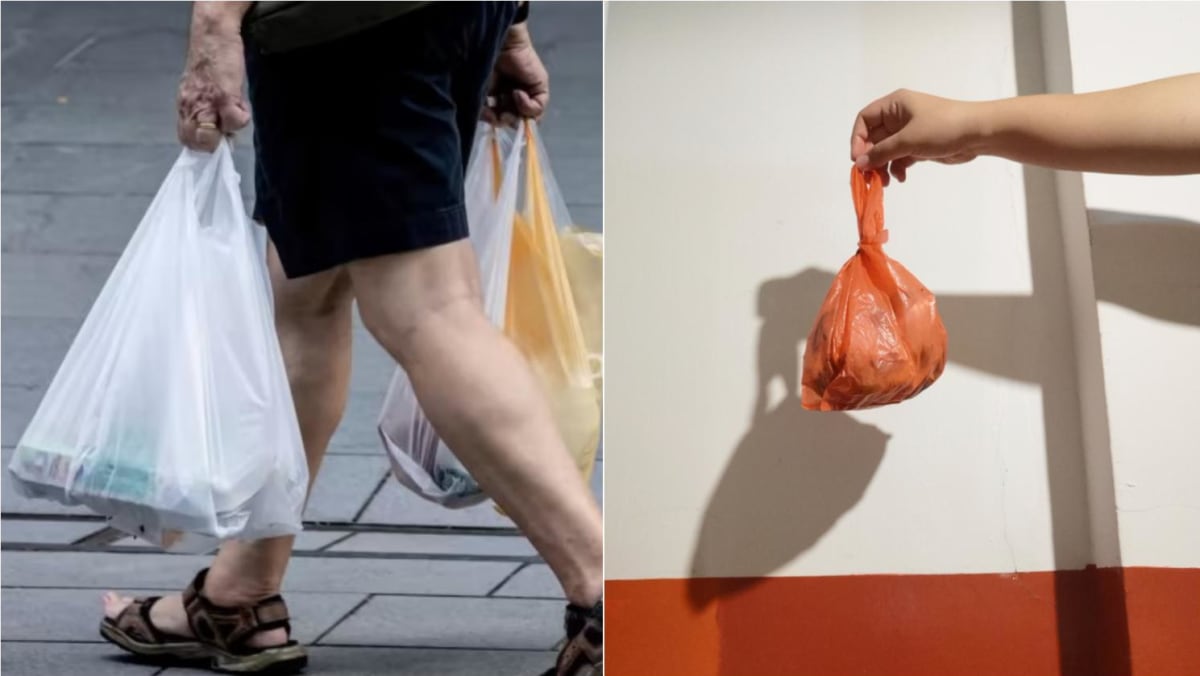
NUS’ Dr Tong similarly said that to achieve a sustainable waste management system in Singapore, it would be helpful “if we can be more intentional about how we treat our waste at the household or individual level”.
Proper segregation and handling of waste by the individual simplify the process of recycling, he said.
“It is only when we mix all waste together that the only solution to manage the waste would be to incinerate it or to dump it in a landfill,” he added.
These sentiments were in fact echoed by Earl, the critic of the bag charge, who said: “A significant challenge here is changing the waste disposal behaviour of the people because that is the biggest roadblock I see to this issue.”
He added that “the average consumer has little to no choice but to consume a lot of plastic because of the options available to them” unless they “pay significantly more, whether with money or time”.
“A BEHAVIOURAL NUDGE” BEYOND BAGS
The bag charge is “first and foremost, a behavioural nudge”, Senior Minister of State Dr Khor told parliament in March. Apart from nudging consumers, can the charge have more far-reaching effects on sustainable attitudes and practices?
NEA said it hopes that the impact of the charge will not be limited to the large supermarkets, but will bring about “a broader change in shopping practices to reduce waste and increase the use (of) reusables where possible”.
The bag charge is more than just a financial disincentive, said Dr Samuel Chng, head of the Urban Psychology Lab at the Singapore University of Technology and Design.
The charge creates a “new default” where it is presumed that shoppers do not need a bag unless they proactively ask for one. It also acts as a “timely prompt” making people more aware of the need to reduce consumption of single-use plastics.
Over time, the charge will lead to a “new personal norm” where reusable bags are used by default, said Dr Chng. Collectively, this may also lead to a new social norm, where asking for a single-use bag might be frowned upon as a social taboo.
“This should go beyond plastic bags in supermarkets to different areas in our lives, for instance, when (taking away food) from the hawker centres,” he said.
“We are also subconsciously developing an awareness and discernment of what are avoidable consumptions and how we are able to contribute, through our everyday behaviours, to climate challenges.”
Dr Chng said a “committed minority” can influence the majority and change social norms by being “unrelenting” about not using reusable bags. He pegged the tipping point for this minority at about 25 per cent.
He also acknowledged the “thorny issue” of achieving fairness and equality in climate action, where the wealthiest parts of the population are responsible for a disproportionate share of carbon emissions.
There have been concerns that the bag charge would disproportionately affect low-income households. NEA previously said that the charge amount has been kept low so as to moderate the cost impact on shoppers.
